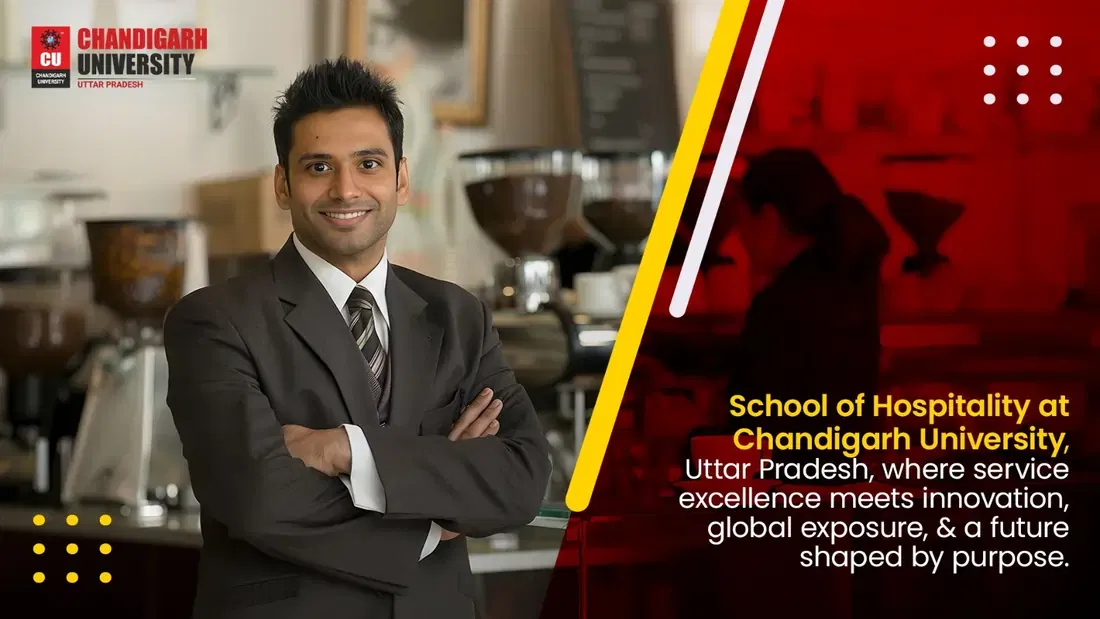How to become a food critic? Have a bachelors degree with an exceptional interest in reviewing food and its industry. Food critics review restaurants and food businesses for a living.
Table of Contents
The word critic refers to someone who judges, analyzes, and evaluates particular things. The food critic must have a genuine interest in exploring cuisines and writing a detailed analysis. How to become a food critic? The minimum educational qualification required to become a food critic is a bachelor's degree in Journalism, Mass Communication, or equivalent degree, along with exceptional communication skills. So, to become a food critic, it is crucial to express food in words and a couple of other skills.
Steps-wise Guide to Become a Food Critic in India
To become a food critic, traditionally speaking, an aspirant must be well familiar with writing and reviewing food and everything else related to the food industry. The title of a food critic is acquired over some time with experience and expertise gathered in journalism and culinary arts.
To become a food critic, one must be well-versed in writings for publications, food magazines, and other internet-based ventures. A candidate aspiring to become a successful food critic should meet certain eligibility and must have the necessary skills required.
Listed below are the steps to become a food critic.
- Step 1: Eligibility to Become a Food Critic
- Step 2: Degree for Becoming a Food Critic
- Step 3: Work Experience for a Food Critic
- Step 4: Food Critic Skills
Step 1: Satisfy the Eligibility to Become a Food Critic
To become a food critic, the basic requirement is to earn a bachelor's degree. And the essential requirement is to recognize the taste, smell the different dishes, and review the dish's presentation.
Below are the eligibility criteria to be satisfied to become a food critic.
- A food critic must have communication skills. It's an added advantage if the food critic is fluent in English and the local language of the area they are reviewing.
- It is also preferred that they should get a degree in English and Journalism.
- A person should also have a vast network and must have experience by working in the food industry.
Step 2: Earn a Bachelor's Degree for Becoming a Food Critic
Education plays a critical role in becoming a food critic. Bachelor's degree is vital for achieving this dream because a food critic's job is to write reviews. However, to have reviews in an organized way, they need to have a proper education. That is why food critics are preferred or expected to have a bachelor's degree in Mass Communication, Journalism, and English communication skills. There are no specific courses for being a food critic.
Below are the three preferred ways to become a food critic in India. Candidates can satisfy any one of the educational requirements to be a food critic.
Educational Requirement 1
A candidate needs to have a bachelor's degree in either one of the fields, i.e., English, Communications, Mass Media and Journalism. One needs to be an undergraduate in any of the listed subjects; this serves as the perfect foundation for becoming a food critic.
It is essential to have a stronghold over the language, coupled with communication and networking skills. A degree in arts from any subject too is extremely valid as liberal arts helps to broaden one's horizons.
Educational Requirement 2
Another probable education route that one could take to become a food critic is culinary arts. A bachelor's degree, a diploma or even a certificate program in culinary arts or the foodservice industry will help one gain insight into the world of food.
Educational Requirement 3
The 3rd education pathway that one could pursue is a degree in hotel management or hospitality. It serves as an excellent training ground for imbibing the essence and etiquettes of the foodservice industry.
One can also start early by writing anything and everything food-related in the school or college magazine, for instance. Having a personal blog or a journal or taking up some cooking classes is also a great way to start. The key here is to be extremely smart and focused.
Step 3: Earn Work Experience as a Food Critic
Food critics can build a portfolio of relevant work experience while honing their reviewing skills at a newspaper, magazine, or online publication. Besides, reporters and writers might be able to advance to a food critic position by gaining relevant experience in producing a collection of original reviews.
A food critic can work as a freelance reviewer and writer. Interning under a food editor, chef, or at a restaurant is highly advised. Prospective critics should be familiar with preparing, arranging, and serving restaurant dishes, so working in a restaurant can add to their credentials. However, they can travel and taste international cuisines to widen their culinary perspective.
Being a pro at many different related skills will help one get noticed and eventually hired. For instance, being a great photographer and videographer with impeccable writing and communication skills topped with a camera-friendly personality and demeanour with the right education and prior experience in the mix will get one ahead.
Hence being an expert on gastronomy alone is no more advisable or viable in today's day and age. Additional complementary skills and work experience is the way to go ahead.
Step 4: Develop Food Critic Skills
The significant skills that any person need to preserve to become a food critic are,
- It would be best if one had a sharp taste of sense.
- It will help if one is exceedingly social and outgoing.
- Efficient communication skills.
- Able to understand the nitty-gritty of a dish and the foodservice industry (restaurant business).
- Able to make contacts and gain influence. (networking)
- It would be best if an aspirant is up for travelling.
- It will help if one lets go of biases and learns to be objective.
- Possess critical and objective thinking.
- Articulate and actualize thoughts into writing.
Also, Check: How to Become a Food Scientist?
What Does a Food Critic do?
A food critic is commonly known as a restaurant critic or food writer, and they are the professional writer who samples and reviews food. Food critics are expected to travel to different restaurants and experience various dishes and write about them.
Top food critics even get a chance to travel the world to try new dishes. The job options can be in Newspapers, blogs, magazines, blogs, and websites. But some of the food critics also published their own books.
Career as a Food Critic
A food critic is mostly about writing. One needs to be a writer first, working as a journalist and a writer. One will have to start as a generalist and then specialize as and when the right opportunity presents itself.
Hence, it should and does always go this way. A career in food critics is for writers who enjoy food and is not meant for foodies who learn to write in the hopes of making it as a 'critic.' The career of a food critic, though it is incredibly diverse.
One needs to be up for constant change for content dissemination and the evolving role of a food critic in the day and age of Instagram.
Also, Check: Steps to Become a Health Inspector
Food Critic Jobs
A food critic is assumed to be someone who has his life easy. It's a tough job to communicate something descriptively, which can be very mundane-there are food critics who talk about the texture of each layer involved in a sandwich.
As a food critic, aspirants must pursue writing seriously every day of their life. Most of the food critics of today have a background in journalism. Secondly, never refrain from tasting different types of food from different cultures. If one is picky about food, forget about food criticism as a profession.
The primary food critic jobs are,
- Food Journalist
- Food Quality Assurance Executive
- Food Editor and Business Leads
- Assistant Category Manager- Food and FMCG
- Food Safety and Hygiene Manager
Food Journalist
Candidates who want to get hired for this job need to have impeccable communication skills and attain a bachelor's degree. Their job is to visit restaurants, taste food and give reviews based on what they experience. Candidates with this job will have a significant impact on the success of the restaurant.
Food Quality Assurance Executive
The responsibilities of this job is to help the clients to implement the required standards. The eligibility to get this job is to have a minimum of 0-2 years of experience in the area of implementing food safety standards. Candidates should also have good written and oral communication with essential knowledge and be aware of the local language.
Food Editor and Business Leads
The requirement for this job is to have minimum hands-on experience of 1-2 Years. English proficiency and food vocabulary are a must for the candidates to sustain in this job.
Assistant Category Manager- Food and FMCG
FMCG Stands for Fast-Moving Consumer Goods. The responsibilities of this job are to develop collaborative relationships with the marketing team, stakeholders, and suppliers. They should also be aware of practices in problem-solving.
Food Safety and Hygiene Manager
The qualifications required for this job is to be secured with a B.Sc/M.Sc degree with Microbiology or Food Technology. The job is to analyze quality product metrics, to implement and monitor food safety management programs for suppliers.
Food Critic Salary
The basic average food critic pay in India is INR 6,96,072 or a proportionate hourly rate of INR 335. What's more, they acquire a standard reward/bonus of INR 20,116. Pay gauges dependent on pay study information gathered legitimately from managers and culinary representatives in India.
Initially, the salary of a food critic or reviewer is less, especially in traditional media such as newspapers. One can expect a starting salary in the range of INR 15,000 to 20,000 per month. The increase in salary with experience, exposure, and popularity are usually multifold.
Importance of Food Critics
Even though there are mainstream career opportunities an individual might not relate to or may grow bored with what they have to offer. The intent here of the above statement is not to undervalue any profession but rather to emphasize an individual's artistic capabilities, which make them seek out offbeat job profiles.
In the case of a future food critic, there is always an undying love for food. One can often find these individuals indulging in the art of cooking and tasting what others have made while engaging in the world of culinary arts and so on.
Pros and Cons of Being a Food Critic
- Opinions of friends
- Establishing and risking credibility
- Positive and negative readership
- Exciting job or the daily grind
- Personal challenges and expense
Food Critic Colleges in India
Though there are no specific colleges for food critics, some colleges have more scope and would be helpful for the candidates who want to become Food Critics.
Below is the list of top colleges one can choose from.
- Indian Institute of Mass Communication, New Delhi
- AJK Mass Communication Research Centre, New Delhi
- The Asian College of Journalism, Chennai
- Times School of Journalism, New Delhi
- Indian Institute of Food Processing Technology (Thanjavur- TN)
- MIT College of Food Technology, Maharashtra
Top Food Critics in India
One can very quickly turn their passion for food into a stable everyday job. The extensive options and elements of a food critic job include exploring, researching, travelling and building a network of connections. A food critic is all one should be if they find themselves delving into the intricacy and detailing of food.
The top food critics in India are,
- Roxanne Bomboat
- Himanshu Sehgal
- Swayampurna Mishra
- Shivesh Bhatia
- Kalyan Karmakar
- Ronak Rajani
Scope and Career Prospects of a Food Critic
Food critics are an integral part of the world of Gastronomy. The scope and career prospects of a food critic are aplenty, to be honest. They undertake an extensive exploration of cuisines while exhibiting artistic abilities and instincts in judgment and application of knowledge.
Below are the various career opportunities that help aspirants advance in their career as a food critic.
Publishing
One can be hired as a columnist or an in-house contributor, writer, editor of the food and culture section of a newspaper, magazine, or online website. It is never really an entry-level job or position, especially in the world of publishing. One needs to have clocked at least five years in the relevant workforce or industry to be even remotely considered for the role. But those who make it find a stable job that pays well.
Candidates can easily seek employment in the beginning in travel guides, city directories and other supplementary and promotional material produced to promote and advertise restaurants and food joints.
Television
The more one gets successful in the field as a food critic; the more jobs happen to present themselves. The super renowned food critics can end up on reality television, cooking, travel, and lifestyle shows.
This job offers an extremely lucrative salary, coupled with an increase in one's brand value and popularity amongst the masses. One can also seek employment as a food correspondent or a city, culture, or lifestyle reporter for a news channel.
Internet
Thanks to the information technology advancements, many doors and avenues have opened up for a lot of individuals to have a shot at making it in 'snobby' professions such as fashion, food, and lifestyle, to name a few.
One can start their blog or work in collaboration for food channels on platforms such as Youtube. The best among them is to be a food influencer on Instagram while gaining immense popularity and revenue at the same time.
Food Apps
Another modern-day means of making a career as a food critic would be to seek employment at food-related apps. Food Delivery apps hire writers to review and write about the industry, and other traditionally speaking, deemed journalistic tasks such as reporting.























POST YOUR COMMENT